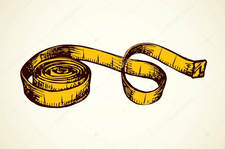weekly column
|
Each week, find a commentary on something connected to verses of Torah or another source of wisdom
|
|
Each week, find a commentary on something connected to verses of Torah or another source of wisdom
|
 The Leviticus:8 Project He shall remove all the fat from the bull of sin offering: the fat that covers the entrails and all the fat that is about the entrails Leviticus 4:8 I have a friend who is morbidly obese, so much so that I am startled every time I see him because I cannot hold in my brain his size. Some time ago we had lunch and I asked him if he was alarmed by his weight. He told me he was not because he never saw himself as fat. He said he had a fixed image of himself since he was a teenager of more usual proportions and that’s what he saw when he looked in the mirror or thought of himself. I was fascinated by that response, but only recently understood it viscerally. I was skinny at 16, but fifty years later, I most certainly am not. And worse, I carry most of the extra weight right up front. Pictures of me taken in the last number of years show ample reason why my granddaughter asked me, during her mother’s recent pregnancy, if I had a baby in my tummy, too. Mostly, I don’t see it in the mirror, probably because the direct frontal view I have when brushing my teeth or shaving allows me to see the svelte teenager that is still the source of my body image. But there is no getting around it – almost literally – that in the midsection, I am fat. Adjective or noun, that word is morally neutral, but in common usage it carries a negative judgment. If it didn’t, we would not have so many euphemisms for it or spend so much time and effort addressing it. Certainly, there are serious health considerations to schlepping around excess poundage, but so many cultural references disparage fat that it is hard to hear a description without hearing a judgment. I alternate between resolve and despair about my shape. When buttoning my pants requires a yoga position or squirming into my car in a tight parking spot soils my shirt, I become determined to lose whatever I must to eventually melt that belt. (I know you can’t choose where to lose, but sooner or later it will be my belly.) When facing a particularly delectable dessert or a chance to join a friend for a drink, I tend to rationalize the inevitability of my condition. At the moment, I am making slow progress. I won’t say in which direction. It does not make me feel better to notice that so many people around me have wider girths than I carry. Some of them, I suspect, are in the same place of denial as I am. The expansion of the American physique is well-documented, even as airlines and theaters try to squeeze more revenue out of narrower seating. The fat that attaches to certain internal organs was, under whatever system governed the sacrifices, not considered edible. Instead, it is used to create the sweet-smelling smoke of the altar. In that sense, it is not really a sacrifice – there was no particular value to it. That which had worth was preserved and used to sustain the priests and their families. I imagine this context affirms both of my attitudes toward the current condition of my body. There is no worth to the fat. It would be sweet to divest myself of it and to return to sizes of suits and jeans that I remember from my earlier days. But the fact is that I, like my friend, still recognize what is of real value. The younger and more vital forms of ourselves still reside inside these larger versions. Being able to understand that the fat may obscure the sight of our teenage bodies but not the spirit, not the dreams, not the delights is essential to living well today. That’s not an excuse to ignore the health risks that come with being overweight. But it is a caution against despair. Fat is extraneous. It is neither inevitable nor definitive. This physical lesson is a spiritual one as well. There are all sorts of behaviors, beliefs and neglects that have encased our better selves in unnecessary and probably unhealthy disguise. But if, by remembering the good person at the core, we can learn not to fixate on what is neither inevitable nor definitive, with or without the excess poundage we can live a good and happy life.
0 Comments
Leave a Reply. |
Archives
October 2023
Categories |